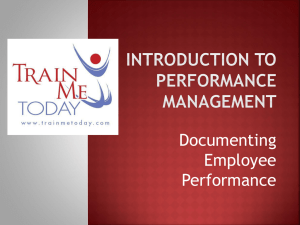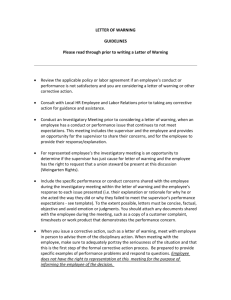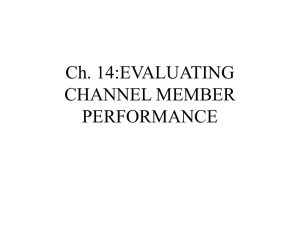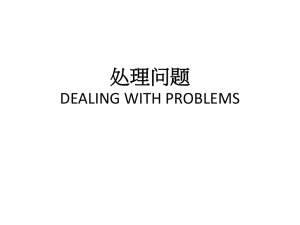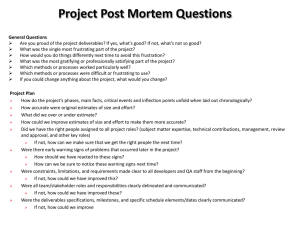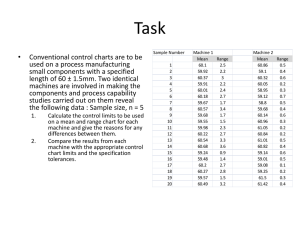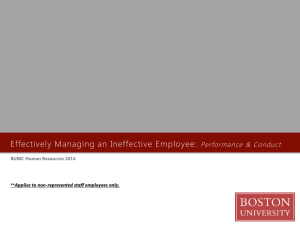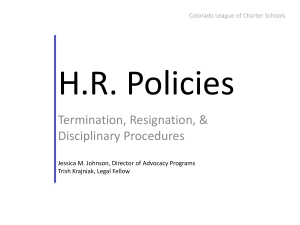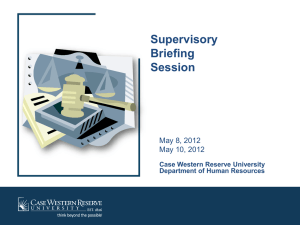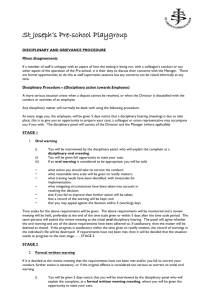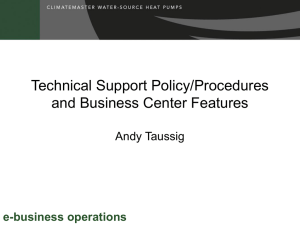Perfecting the Correcting Counseling Process
advertisement
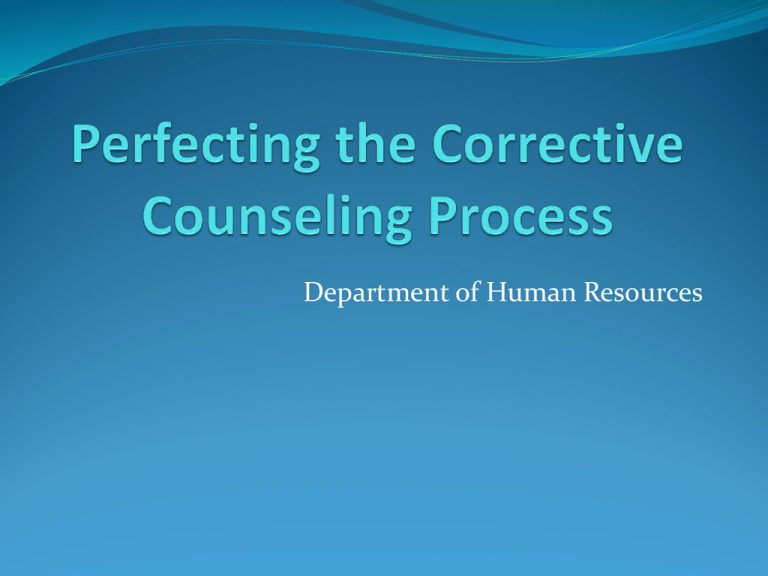
Department of Human Resources Progressive Process A progressive discipline system gives employees ample warning of misconduct or work-related problems; it puts them on notice that failure to change the behavior by penalties that increase with each warning. A thorough knowledge of the attendance policy and consistency in communicating expectations are vital to effectively managing the disciplinary process. Disciplinary Process – Procedural Steps First Written Second Final Written Warning Termination Disciplinary Process First Written Warning - The supervisor meets with the employee and discusses the issue that must be corrected, using the corrective action form as documentation. The purpose is to discuss the problem with the employee, to establish an understanding as to why the problem exists, and to determine what improvement will be made. Reference to previous related verbal warnings should be discussed, if applicable. The written warning should include specific expectations for improvement and a specific timeframe for meeting these expectations. Failure to correct the deficiencies/infractions, or additional violations, will result in further corrective action, up to and including termination. Disciplinary Process Second Written warning – The supervisor meets with the employee and discusses the issue that must be corrected, using the corrective action form as documentation. The purpose of the second written warning is fundamentally the same as the first. The discussion should explore the reasons for lack of improvement, determine whether further assistance and guidance from the supervisor is needed, and reemphasize the performance expectations. The corrective action form should include examples that exhibit a continued lack of improvement, specific expectations for improvement, and a plan of action from the supervisor. Failure to correct the deficiencies/infractions, or additional violations, will result in further corrective action, up to and including termination. Disciplinary Process Final written warning – After review and consultation with the Department of Human Resources, the supervisor meets and discusses with the employee the issues cited in the other warnings, using the corrective action form as documentation. The final written warning meeting is a sincere effort to offer the employee a final chance to alter the unacceptable behavior or performance pattern that has continued and has not been corrected. This warning, again, should include specific expectations for improvement and a specific timeframe for meeting these expectations. Failure to correct the deficiencies/infractions, or additional violations, will result in further corrective action, up to and including termination. Setting Expectations It is important that your department set clear employee expectations upon hire. Your new employee orientation process should provide a clear overview. Areas such as attendance and performance standards should be discussed. Address issues of ‘misunderstandings’ as they occur Disciplinary Process TERMINATION When it has been determined that improvement has not been forthcoming it may be necessary to terminate the employee. Discharges must be reviewed and approved by the Department of Human Resources. After appropriate review of the situation, the employee will be notified and provided with written documentation. If a very serious offense has occurred, and immediate action must be taken, the supervisor should contact the Department of Human Resources immediately to discuss the appropriate course of action. If a thorough investigation is warranted prior to a final decision of termination, Human Resources, in conjunction with the supervisor, will collaborate to make this determination. If the employee is required to leave the premises, they will remain in a suspended status pending the outcome of the investigation. If such investigation finds the employee was not at fault, pay for any lost time will be provided. The management of the university, in its sole judgment, reserves the right to take whatever corrective action deemed necessary to address cases it perceives to be of a serious nature. Nothing in this corrective action policy negates employment at will or an employee’s at will status. Documenting Discipline Get your emotions in check Determine the severity of the incident What course of action should be taken (Verbal, Written or Final)? - Do not ignore the issue!!! WRITE IT DOWN! Organize your thoughts, be specific Initiate a meeting to discuss the problem Meet with the employee one on one (include a witness when appropriate) Use verbal, professional Communication Use a job description as reference (if necessary) Focus on the behavior and provide examples Ask for input from the employee on how to correct the behavior Explain the consequences for not making improvements Develop Goals Conduct a follow-up meeting The Warning Notice Key aspects to be covered within a written warning: 1. Opening paragraph: refer back to the discussion(s) with the staff member and/or the action(s) taken to date. 2. Second paragraph: state the problem, your expectations, and specific directives for correcting the unacceptable performance and/or conduct. Third paragraph: provide formal notification that the letter is a (first, second) written warning and 1. spell out the consequences of continued failure and/or 2. spell out nature of disciplinary action to be taken immediately. Include appropriate signatures/send to human resources and provide employee with a copy Questions Angela Nixon, HR Manager 414-288-0830 Email: angela.nixon@marquette.edu Human Resources Department
